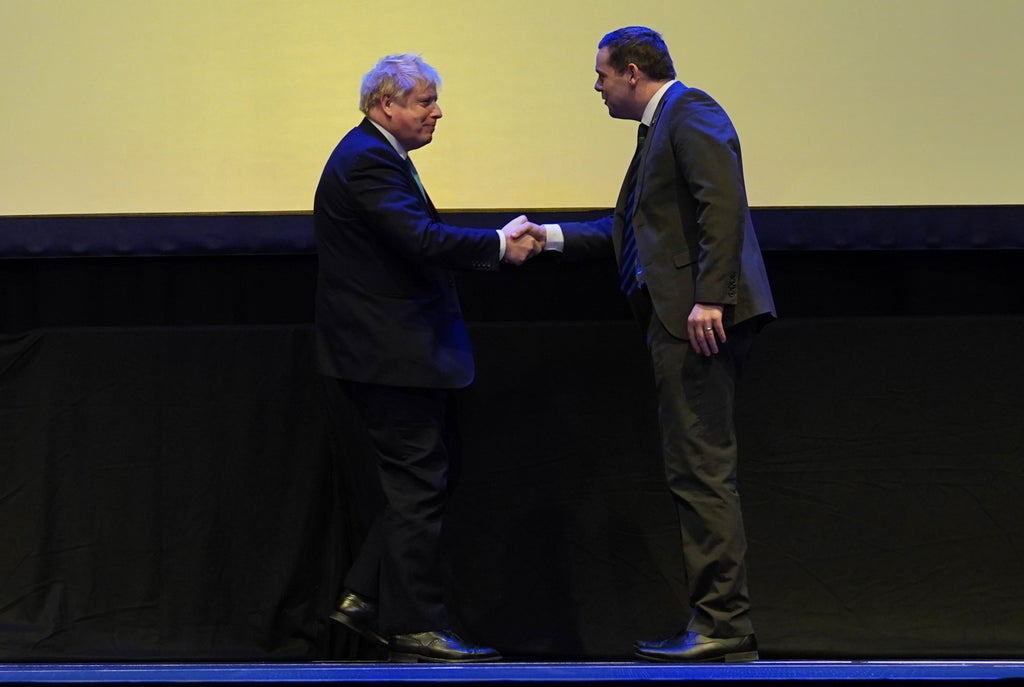
Tory infighting has begun in Scotland as the party prepares to slip to third place in what its own leader admitted were “very disappointing” local election results.
Under the popular Ruth Davidson, the Conservatives displaced Labour as the most popular unionist party – but they lost more than 10 per cent of their vote in some wards, in early results.
In Edinburgh, the Tories slumped from first to fifth place on the capital’s city council, losing half of their seats and winning only nine.
The elections guru John Curtice forecast that, while the Tory party had escaped its “worst nightmares” in England, it looked “highly likely that its fears north of the border will be realised”.
Douglas Ross, the Scottish Conservative leader, blamed public anger over the Partygate scandal, and the fine handed to Boris Johnson for breaching his own Covid rules, for the setbacks.
“There is absolutely no doubt that people have sent a message to the prime minister and the government, particularly around Partygate. That’s what came out loud and clear,” he said.
“It seems many of our supporters decided to sit this one out to protest and not cast their vote, and we’ve lost out as a result of that,” Mr Ross added.
But one former Conservative member of the Scottish parliament called that “nonsense” and instead turned his fire on damaging flip-flopping by Mr Ross himself.
The leader was one of the first Tory MPs to call on Mr Johnson to quit over the No 10 parties – but then withdrew his letter demanding a no-confidence vote after the war in Ukraine broke out.
“Whatever today’s results show, Douglas Ross owns this, not Boris,” Adam Tomkins, a constitutional lawyer at the University of Glasgow, tweeted.
“It was Douglas who U-turned, Douglas who flipped, and Douglas who backed the PM. He and his team need to own the consequences, not pass the buck.”
Mr Ross ducked a fresh question about whether the prime minister should resign, saying: “We are at a crucial stage. We know in the next few days that the Russians want to claim victory in their annual Victory Day.”
He then added: “However, the prime minister simply can’t ignore the message that has been sent from voters, not just here in Scotland but across the UK.”
The Scottish National Party is certain to win the elections, maintaining its iron grip on the nation’s politics as it pushes for a second independence referendum next year.
Ian Blackford, the SNP’s Westminster leader, said: “The Tories are being rejected. Their vote is down and I think what really is important today is that the voters have sent a message to Boris Johnson.”
However, on Glasgow City Council, the SNP leader was overtaken by the Scottish Greens on first preference votes in the city’s Langside ward.
Susan Aitken suggested the co-operation agreement between the SNP and the Greens at Holyrood may have led to the surprise result in her ward.
Scottish Labour took overall control of West Dunbartonshire Council – unseating minority SNP rule – after the proportional voting system left no party with a majority in any local authority area after the last elections, in 2017.
Voters were electing more than 1,220 councillors across all of Scotland’s 32 local authorities, against a backdrop of the SNP’s commanding poll lead of around 45 per cent of the vote.







